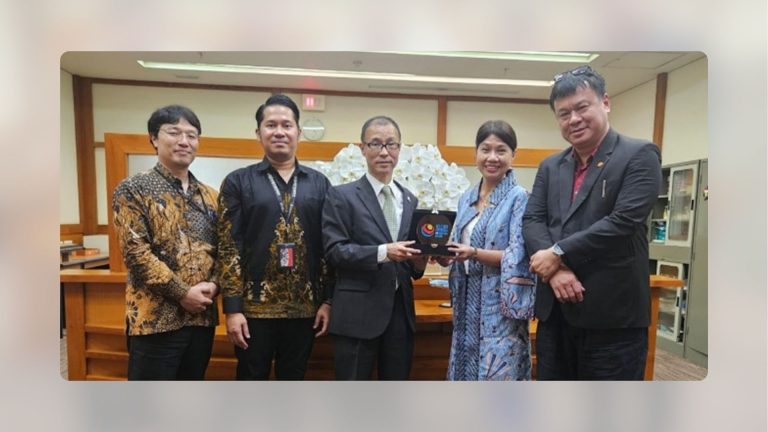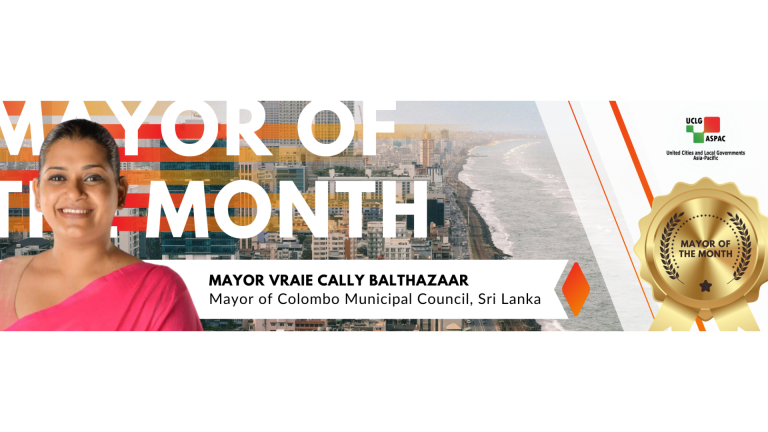CITIES and urban areas worldwide face a similar dilemma: the more city grows, the more waste it generates. But the waste challenge is also the impetus for Pekanbaru City to commit to shifting towards climate-resilient and sustainable development by participating in UCLG ASPAC-led Climate Resilient and Inclusive Cities (CRIC) Programme that is funded by the EU.
With a growing population of 1.9% per year, Pekanbaru City houses around 1.2 million people generating at least a thousand tons of waste each day. Of the waste, 70% end up in the landfill, contributing to the GHG emissions. Pekanbaru Environmental Agency (2017) reported that waste was one of the major greenhouse gas-emitting sectors from 2000 to 2016 in the City. As one of the ten CRIC’s pilot cities, the Mayor of Pekanbaru has demonstrated its commitment to tackling climate change through its priority sector, a wide range of efforts from policy, education and capacity building.
Waste Management Policy Framework
The urgency to tackle the waste problem forced the city government to evaluate its waste management practices. Talking to CRIC at the Mayor’s Office, Pekanbaru Mayor Firdaus stated that Pekanbaru is committed to tackling the waste problem. “In line with the vision of Pekanbaru Smart City 2017-2022, we see the urgency to tackle the waste problem to create a healthy and sustainable environment. To achieve that, we find it important for the City to have mitigation and adaptation actions to anticipate climate change,” said the Mayor on Wednesday (1/9).
Mayor demonstrates this commitment by developing a Waste Management Master Plan as a policy framework to promote the shift from a linear to a circular approach. Environmental Agency (Dinas Lingkungan Hidup) manages and oversees the waste cycle, from the household level to the landfill.
The Waste Management Master Plan entails strategies to strengthen existing policies, institutions and community participation. In terms of policy, Pekanbaru is drafting the Local Regulation of Retribution Fee to optimise the revenue from waste collection. In line with this, the City’s Landfill Management and Retribution Fee Technical Implementing Units will turn to Regional Public Service Agency (Badan Layanan Umum Daerah/BLUD). This institutional shift is expected to increase waste service to the public, reduce the dependency on the Local Budget and improve BLUD’s performance in waste management.
Mayor further stated that community participation is key to waste management through 3R (reduce, reuse, recycle) practices. “In the end, we need to engage local communities as key actors in waste management and instil new behaviour in managing waste,” he said.
As part of community mobilisation strategies, Pekanbaru is revitalising a Waste Bank programme. The City developed Main Waste Bank that oversees Waste Bank at a neighbourhood level. “Main Waste Bank focuses on collecting and separating waste that still has economic values. We want to reduce waste transportation to the landfill while ensuring that local communities can receive additional income from waste,” said Zulkarnaini, the Director of Main Waste Bank Zulkarnaini (1/9).
Building Local Capacities
With existing and planned waste management and policies, Pekanbaru is on the move towards sustainable development. However, capacity gaps remain when it comes to local capacity in developing climate action. CRIC Project delivered a virtual GHG Inventory Training to Pekanbaru CRIC Working Group members from 14 to September 15 2021, to fill this gap. This training is part of Climate Action Plan Development Training consisting of climate change mitigation and adaptation training for ten Indonesian pilot cities from 2021 to 2020.
In the GHG Inventory training, participants learnt about climate change mitigation, the policy guidance to develop GHG Inventory, activities contributing to GHG emissions, and online reporting through the Indonesia Ministry of Environment and Forestry (MoEF)-owned tool, SIGN SMART. The participants also discuss the emissions-emitting activities from the waste, IPPU (The industrial processes and product use) and AFOLU (Agriculture, Forestry and Other Land Use) sectors.
In the opening session, the Head of Pekanbaru CRIC Working Group Erwinsyah said, “we highly anticipate this training to increase local government’s capacity in climate change mitigation efforts.”
The GHG Inventory training is the first training on climate change mitigation that the City will receive. In the other two trainings, the City will learn to calculate GHG Baseline and develop the Mitigation Action Plan. While in the adaptation training, the City will learn about climate change science basis, vulnerabilities and risks and how to formulate the Adaptation Action Plan.











